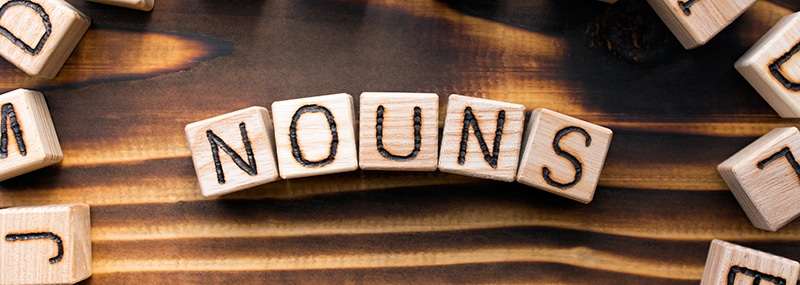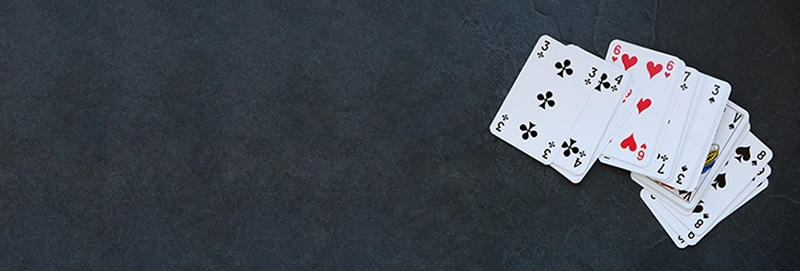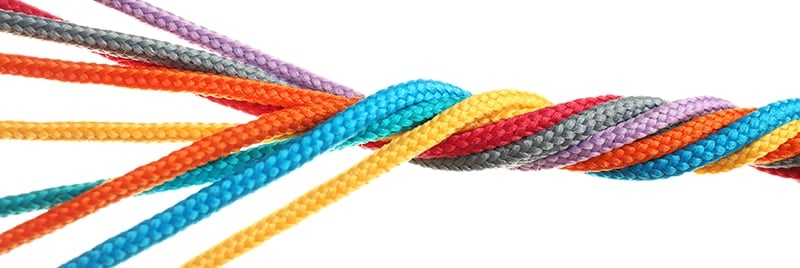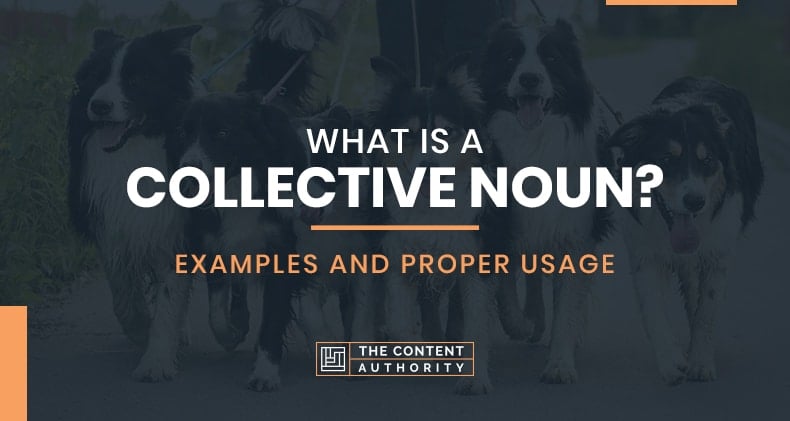A collective non makes reference to a type of noun that envelops “a group as a single entity” as well as the members of that group. Therefore it is regarded as singular in form.
Lots of people don’t know this, but collective nouns are encountered in everyday speech. There are words for single items that are made up of more than one animal, person, place, idea or object. Even a team is still composed of individual members, so the team is discussed as a single entity.
In short, collective nouns are countable nouns. So ultimately collective nouns are used to modify or quantify a bunch of countable nouns as a single cumulative unit.
In the following guide, we’ll have a more detailed look at collective noun examples and their proper usage.

The difference between collective, mass and countable nouns
Things start getting a bit more technical when discussing other types of nouns, such as countable and mass nouns. So let’s take a closer look at these other types of nouns, including collective nouns and see how we can simplify it.
Mass nouns
Mass nouns establish non-count nouns or uncountable nouns. Ultimately, their main purpose is to classify an absolute amount. For example, words like abstracts, liquids, small objects, with other things that can be unconditionally unfathomable. Some examples include water, rice and education.
The above are considered uncountable or non-count nouns since they can’t be counted reasonably. So, therefore, as mentioned earlier, a noun is only referred to as a mass noun when it is a challenge to be quantified, modified or counted in a simple and relatively easy manner.
Countable nouns
Countable nouns are known as count nouns. These nouns are used to identify things or qualify objects that have the ability to be counted. They are also seen in both the plural and singular forms. For example, “three” puppies, and “five hundred” dollars.
Collective nouns
When it comes to the English language in the context of grammar and writing, as we stated before, the subcategory of collective nouns are countable nouns. So ultimately collective nouns are used to modify or quantify a bunch of countable nouns as a single cumulative unit. For example, there are 12 eggs in a dozen.
Collective nouns for groups of animals
In the event of a bunch of animals cohabiting or acting as individuals as opposed to a whole, the fitting scenario in English grammar is to add or replace words to establish references to individuals. For example, you may use “member” to a collective like “board of committee.” “Student” can also be joined with “class.” Additionally, you may use “players” for nouns like “team.”

The following is a list of exclusive collective nouns to qualify and identify a specific bunch of animals. It doesn’t matter if they are insects, birds, or mammals, they can fit into the correct use of collective nouns to identify and qualify them as a single body.
- Droves of horses
- Colony of ants
- Pride of lion
- Flight of doves
- Gaggles of geese
- School of fish
- Flocks of sheep
- Swarm of wasps
- Nest of robins
- Team of vipers
- Troop of chimpanzees
- Yoke of oxen
- Hive of bees
- Herds of elephants
- Unkindness of ravens
- Clutter of cats
- Parliament of owns
- Stand of flamingos
- Horde of crows
- Colony of rabbits
- Sloth of bears
- Troop of monkeys
- Bevy of doves
- Herds of cattle
- Flock of birds
Collective nouns for groups of people
If you’re just describing a group of people, these are the words you need. Although they have connotations of their own, these words are generally safe to use for any group of people. For instance, you could have a “team of players practicing” or a “team of painters decorating“.
Below is a list of words that can be used for different groups of people:
- Company
- Association
- Bunch
- Band
- Body
- Class
- Group
- Cohort
- Crowd
- Posse
- Gang
- Society
- Lot
- Mass
- Party
- Staff
- Set
- Squad
- Team
- Tribe
Unique collective nouns for people
As is the case with groups of animals, the English language has words for groups of people that are not specific but unique, referring to one kind of person. Here are some interesting examples:
- A den of thieves
- A conflagration of arsonists
- A conjunction of grammarians
- A glitter of generals
- A coven of witches
- A phalanx of flautists
- A rage of maidens
- A flight of dancers
- A host of angels
- A slate of candidates
- A tabernacle of bankers
- A quiz of teachers
- A sprig of vegetarians
- A thought of barons
- A wiggle of Elvis impersonators
- A wheeze of joggers
- An attitude of teenagers
- A wiggle of Elvis impersonators
- An illusion of magicians
- An impatience of wives
- An unhappiness of husbands
Collective nouns for groups of objects or things
Below is a list of commonly used collective nouns for miscellaneous things such as fruits, plants and various other things.

While some of these nouns may be old, dating back to medieval times, others are fairly recent and still very relevant.
- A deck of cards
- A glimmer of hope
- A bolt/flash of Lightning
- A pile of money
- A bar of soap
- A drop of rain
- A bit/A piece/An item of news
- A pane of glass
- An item/A piece of furniture
- A stroke of luck
- A bale of hay
- A ray of sunshine
- A piece of jewellery
- A tube of toothpaste
- A ball of wool
- A pinch of salt
- A battery of tests
- A bolt of lightning
- A bar of soap
- A bunch of books
- A bunch of keys
- A chest of drawers
- A clump of reeds
- A bunch of keys
- A deck of cards
- A fleet of ships
Collective nouns for food and drinks
You’ve probably heard these common collective nouns when people refer to food and drinks.
- A bowl of rice
- A bar of chocolate
- A batch of cakes
- A bottle of milk
- A carton of milk
- A box of cereal
- A jar of honey
- A cup of tea
- A jug of water
- A glass of water
- A kilo of sugar
- A loaf of bread
- A kilo of meat
- A packet of tea
- A piece of chocolate
- A pile of cookies
- A piece of cheese
- A slice of bread
- A tub of margarine
- A slice of pizza
Using collective nouns appropriately
It goes without saying, but collective nouns may be used in the singular or plural form. However, this depends solely on the context or framework of the sentence. For example, the word “family” is definitely a collective noun as pertains to several people sharing or having a relationship. But, this can also be articulated in the plural form to pertain to many “families.”

It’s not uncommon for the use of these nouns and sentences to become confusing sooner rather than later. This ultimately stems from the challenge of comprehending, whether the singular, plural or pronoun works. To make correct use of pronouns and verbs, you need to determine or identify if the noun is pertaining to a group as an individual or together in unison.
If the unit is operating in one accord, it is correct to make use of the singular form. Alternatively, when the members of the body are functioning as individuals, you may use plural forms of verbs and pronouns.
Collective nouns and sentences: Proper usage
Consider the following examples to decide if the singular or plural forms are suitable.
The entire yoga class sat quietly to await the yoga instructor.
The word “class” in the above sentence pertains to unity or one accord; the students are the class, and they are participating in the same thing at the same time.
In the following example:
The class started their tests while waiting for the teacher.
In the above sentence, the word “class” refers to a unit or individual. So, in other words, each of those students are working on their assignments independently.
The collectivity of nouns thereof
Collective nouns have always presented an opportunity for wordsmiths to exercise their sense of humor. There are tons of collective nouns which are fun, weird and downright odd which you find online.
However, nouns are still words, and words can be tricky. In particular, collective nouns can pose challenging grammatical questions of number and case.
Why collective nouns are loved
Collective nouns are wonderful words because they’re quite useful. These words are one of the best ways of describing a sighting of animals, and listeners will know immediately that you’re talking about a group of animals and not about an individual.
However, there’s still something more to these words than just trivia or utility. They are incredibly descriptive. These words can tell you about the people, animals or objects in question by describing their shape, form, or character and giving an insight into their behaviors, personalities and nature.
Ultimately, the progressive adjustment in word expressions has had a profound effect on the formation of the specific class of nouns called collective nouns. Learning consistently from a variety of online or printable sources like quizzes, worksheets and activities centered around collective nouns will help you to better remember these words.
Shawn Manaher is the founder and CEO of The Content Authority. He’s one part content manager, one part writing ninja organizer, and two parts leader of top content creators. You don’t even want to know what he calls pancakes.

